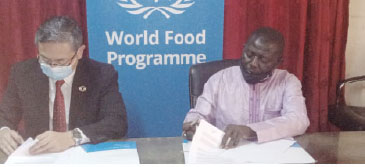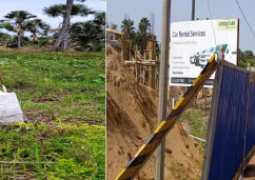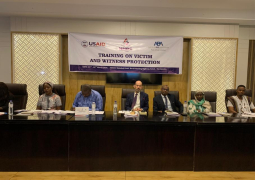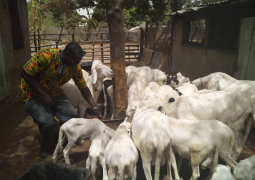
The five-year grand project is donated by the Adaptation Fund and the implementation will start in March 2022 to end February 2027.
It will be implemented by WFP and Ministry of Environment Climatic Change and Natural Resources. The project is basically focusing on adaptation, climate risk management, and market access, targeting Central River and Upper River Regions of the country.
The objective of the project is to enhance adaptive capacity of rural populations in The Gambia through support to climate-resilient and diversified livelihoods and the aim is to develop knowledge and awareness to underpin evidence-based resilience building and adaptation activities, particularly for women and youths among other things.
At the signing ceremony held at Ministry’s Kairaba Avenue office, Yasuhiro Tsumura, WFP Country Director, expressed delight to be associated with the MoU, saying that is a very interesting project and well designed. Through the long process since 2019, MECCNAR and WFP worked side by side to develop the project.
Tsumura indicated that among the components of the project is to strengthen the resilience of the communities and households improving infrastructures against climate shocks and increasing the productive capacities despite these shocks.
“The project will also support the mechanism to transfer climate related risks through weather insurance and it will also develop a knowledge management system and strengthen the evidence base to clearly show the impacts of resilience building and climate adaptation support.”
Also speaking, Momodou Mbye Jabang, Permanent Secretary at the Ministry of Environment Climatic Change and Natural Resources MECCNAR, welcome the move, while thanking WFP for the partnership.
The project, he added, was approved by the AF Board on 3rd May 2021 and the AF Board decided to grant WFP the authorisation to manage the RICAR project and select the executing entities of that RICAR project.
“The targeted groups are smallholders’ farmers and other vulnerable rural groups who are already at risk from climate variability and change, with an emphasis on women and youths.”
The project, he added, expected to increase adaptive capacity and resilience of targeted communities through concrete adaptation and diversified livelihoods of about 6,520,390.





